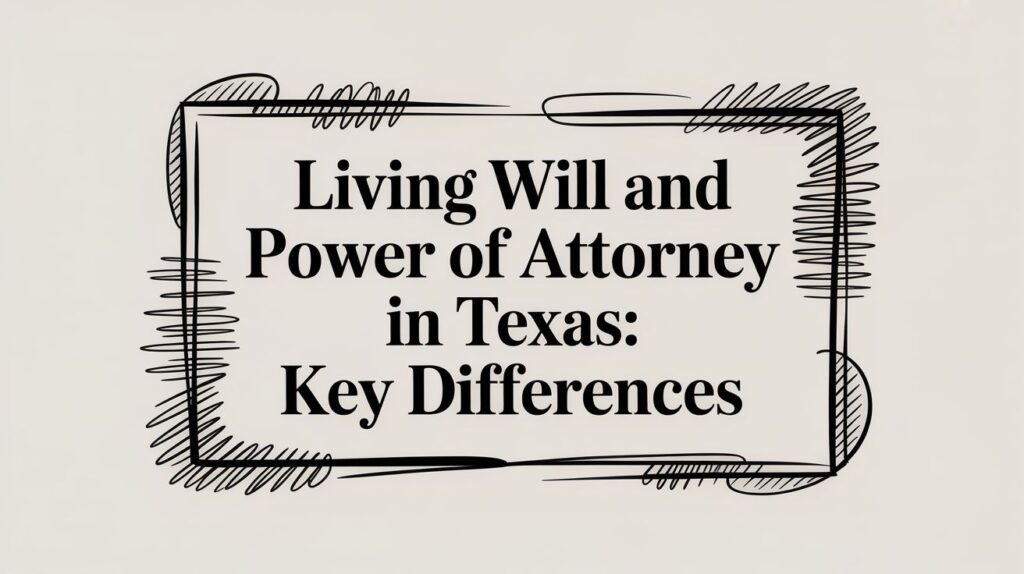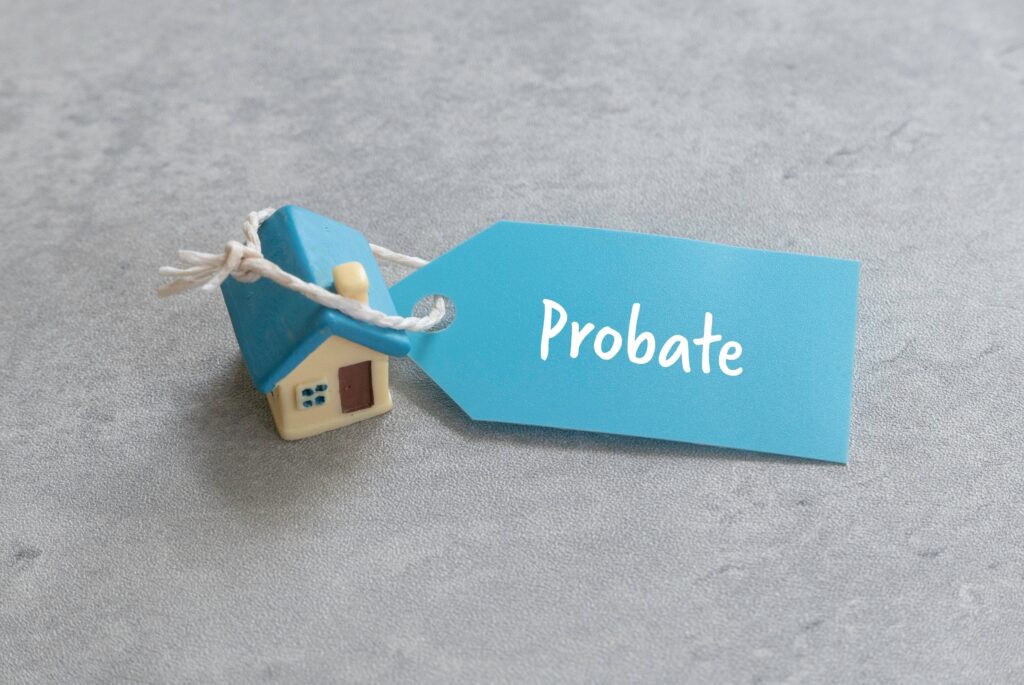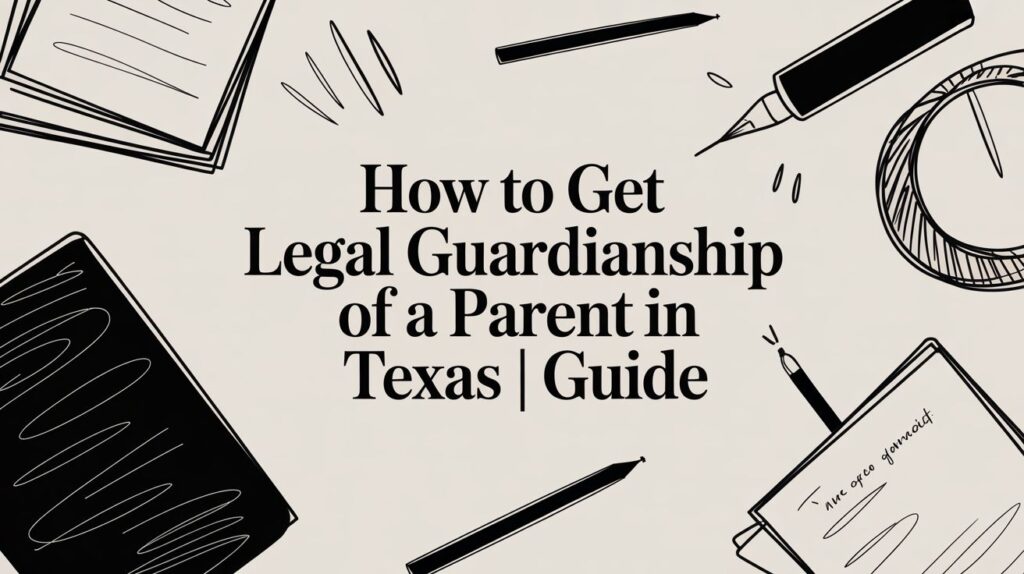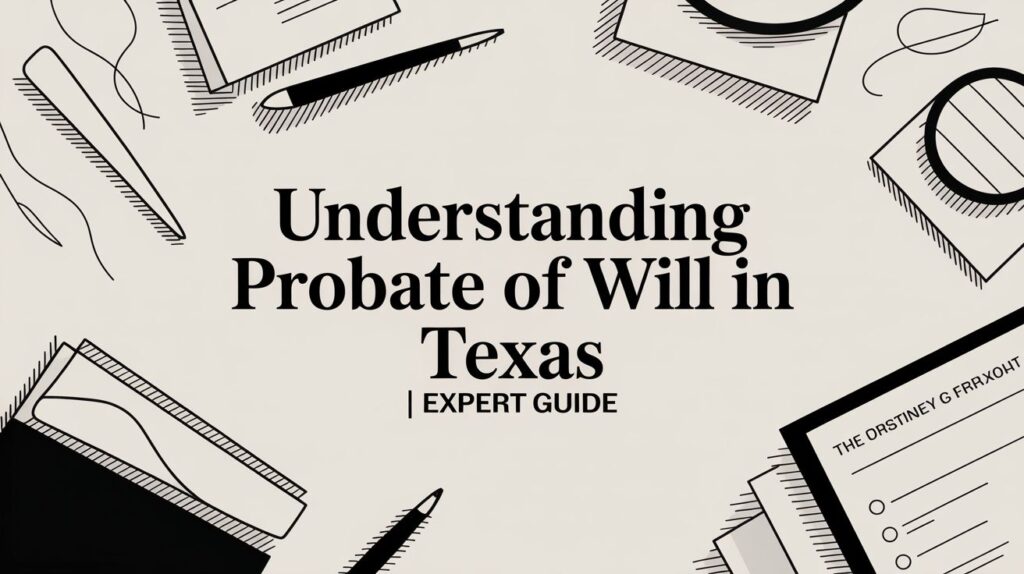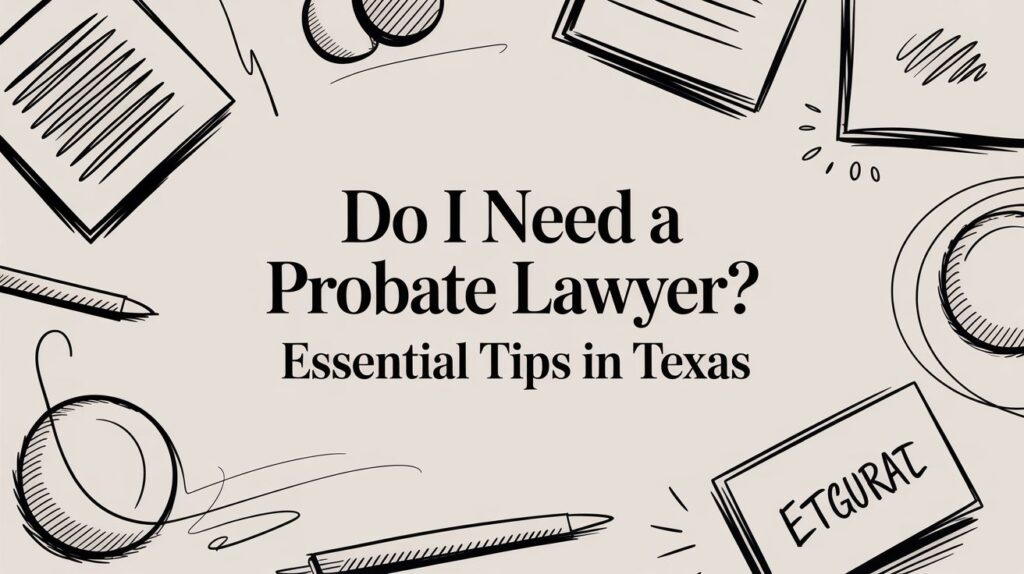If you’ve ever wondered what are proofs in Texas probate, you’re not alone. The term “proofs” sounds technical, but in the world of probate, it plays a vital role in determining whether a will is valid, what evidence the court needs, and who ultimately inherits a loved one’s estate. Whether you’re an executor trying to file the right paperwork or a family member seeking clarity, understanding the various forms of proof in a Texas probate case can help you avoid delays, disputes, and costly mistakes.
This article unpacks the concept of “proofs” in a way that’s clear, practical, and grounded in real-life experiences. We’ll explore the role of affidavits, testimony, self-proving wills, and witness declarations—plus provide insight into how Texas probate courts use these elements to make final decisions on estates. We’ll also look at what happens when required proofs are missing and what you can do about it.
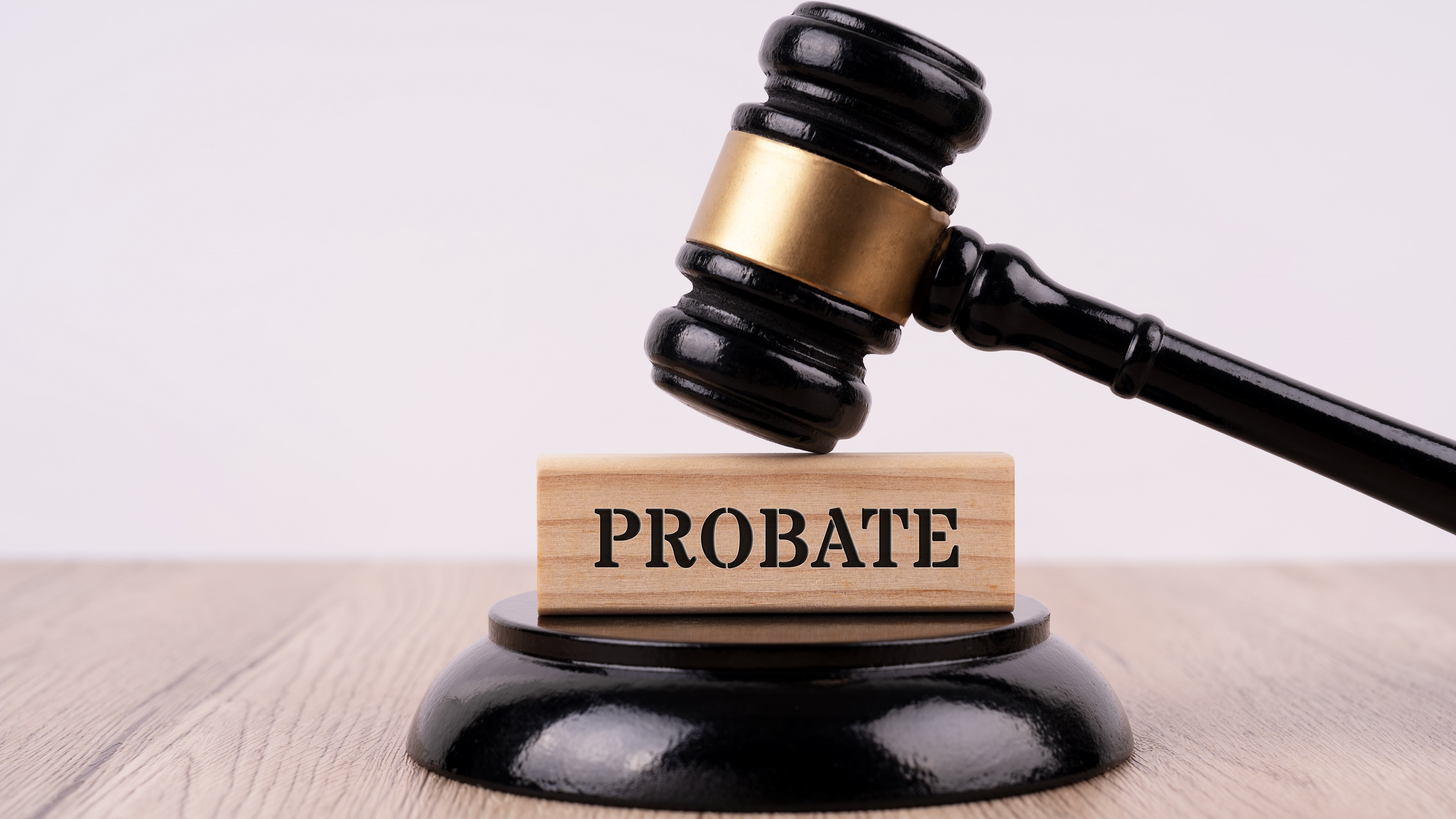
The Foundation of Texas Probate: Why Proofs Matter
In Texas, probate is not just about distributing assets. It’s a legal process that proves—yes, proves—a will is valid, confirms who should manage the estate, and ensures all parties are treated fairly under the law. That’s where the word “proofs” comes into play.
What Does “Proof” Mean in Probate?
In the probate context, a “proof” is any form of documentation, statement, or testimony presented to the court to confirm key facts—like the death of the decedent, the authenticity of a will, the identity of heirs, or the legal qualifications of an executor. Without these proofs, the judge can’t move the case forward.
So, if you’re asking “what are proofs in Texas probate?”—they’re the building blocks of your probate case. And each one carries legal weight.
Real-Life Example: When a Missing Proof Delays Probate
Let’s talk about Karen, a woman from San Antonio who found herself in the middle of a probate mess. Her father passed away, leaving behind a typed will—but no witnesses had signed it. Karen filed it with the court, assuming everything was fine.
The court sent the case back with a request for proof: either a self-proving affidavit or testimony from two witnesses who saw the will signed. Karen couldn’t find either. Without those proofs, the will couldn’t be admitted. The estate had to go through intestate probate, and assets were divided differently than her father intended.
Her story highlights why proofs in Texas probate aren’t just technicalities—they’re the key to honoring someone’s final wishes.
The Most Common Proofs Required in Texas Probate
Different probate cases require different forms of proof, but the following categories are the most common in Texas courts:
1. Proof of Death
This might sound obvious, but the court must have formal confirmation that the person has died. This proof is usually a certified copy of the death certificate, submitted with the probate application.
In some cases—such as missing persons or older deaths where no certificate is available—the court may accept a sworn affidavit or alternative records like funeral home documentation or burial permits.
2. Proof That the Will Is Valid
This is one of the most important questions a probate court answers. And the burden of proof lies with the person submitting the will.
Here’s where the term “self-proving will” becomes critical.
Self-Proving Affidavits
Texas allows wills to include a self-proving affidavit, which is a notarized statement signed by the testator (person writing the will) and two witnesses. It confirms that the will was signed voluntarily, by someone of sound mind, and without coercion.
When a will has this affidavit, no live testimony is needed. The court accepts it as valid unless there’s strong evidence of fraud or undue influence.
:max_bytes(150000):strip_icc()/Will-0ee4e6d5fa8845718558e4148c7f26e5.jpg)
Testimony from Witnesses
If the will isn’t self-proving, then testimony from at least one of the witnesses who observed the signing is needed. If the original witnesses are unavailable, Texas law allows testimony from someone familiar with the decedent’s signature, which adds complexity.
3. Proof of Heirship (When There’s No Will)
If there’s no valid will, the court must determine who the rightful heirs are. This requires an affidavit of heirship or a formal proceeding to declare heirship, which relies heavily on proofs such as:
- Sworn affidavits from disinterested witnesses
- Family history documents
- Marriage and birth records
In these cases, answering the question “what are proofs in Texas probate?” gets deeply personal. It’s not just about forms—it’s about telling a family’s story through legal evidence.
4. Proof That the Executor Is Qualified
Even if someone is named in the will as executor, they must be formally approved by the court. This involves filing an oath of office, a bond (in some cases), and possibly an affidavit confirming that they’re not disqualified due to felony convictions, mental incapacity, or other disqualifiers under Texas law.
The court needs to “prove” that the person tasked with distributing the estate is competent, ethical, and legally eligible.
Understanding the Role of Notarized Affidavits in Probate
One of the most under appreciated forms of proof in Texas probate is the notarized affidavit. These written, sworn statements carry the same legal weight as in-court testimony—and they’re often used to streamline probate cases.
Common Types of Affidavits in Texas Probate
- Self-Proving Affidavit: Attached to the will to confirm validity
- Affidavit of Heirship: Used to prove lineage and identify heirs when no will exists
- Affidavit of Death and No Administration: Allows title transfer for small, uncontested estates
- Affidavit in Lieu of Inventory: Filed by executors when the estate inventory has been settled informally
These affidavits help avoid unnecessary hearings, especially in uncontested cases. But they must follow a strict format under Texas law, and courts will reject them if improperly prepared or incomplete.
Witnesses as Proof: When Someone Needs to Testify
While affidavits are often sufficient, Texas probate courts sometimes require live witness testimony—especially if:
- The will is contested
- The will is not self-proving
- There are allegations of fraud or undue influence
Witnesses are typically called during a probate hearing. They testify under oath and answer questions about the decedent, the will-signing process, and any suspicious behavior observed. Their testimony is considered direct proof in the eyes of the court.
What Happens When Proofs Are Missing or Disputed?
Missing or disputed proofs can stall or completely derail a probate case. If you don’t have the right evidence, the judge may:
- Dismiss the case
- Force the estate into intestate succession
- Delay letters testamentary or administration
- Order a contested hearing

If someone contests a will based on lack of proper proof—say, claiming the will was forged or the signer was not mentally capable—it becomes the court’s job to weigh the evidence and determine validity. This can lead to litigation, expert witness testimony, and a drawn-out probate process that drains the estate’s value.
Real-Life Example: Proving a Handwritten Will in Court
Rodney, a retired teacher in Amarillo, passed away leaving behind a handwritten will. It left his entire estate to his neighbor, whom he considered family. But the will wasn’t witnessed or notarized.
The court required Rodney’s neighbor to present proof that the will was authentic and reflected Rodney’s intentions. She brought in three long-time friends who recognized his handwriting, along with old Christmas cards and letters for comparison.
Though the process took longer, the court accepted the will based on handwriting expert testimony and the sworn statements of those who knew Rodney well. This story reminds us that while Texas recognizes handwritten wills (called holographic wills), they still require substantial proof to be validated.
Tips for Gathering and Presenting Strong Probate Proofs
So what should you do if you’re filing a probate case in Texas and want to make sure your proofs are accepted?
1. Collect Documents Early
Don’t wait until the court asks. Secure death certificates, the original will, prior affidavits, and any known witness information as soon as possible.
2. Use Disinterested Witnesses
Especially in affidavit of heirship cases, courts prefer testimony from people with no financial interest in the estate. This preserves objectivity and makes the evidence more persuasive.
3. Work With a Probate Attorney
Navigating what counts as proof in Texas probate isn’t always straightforward. A skilled attorney can help you assemble the right affidavits, track down missing witnesses, and meet filing deadlines.
4. Avoid DIY Mistakes
Texas probate law is precise. Minor mistakes in dates, notary stamps, or signature formatting can lead to rejected filings—even in uncontested cases.

Final Thoughts: Why “Proofs” Are the Cornerstone of Probate in Texas
To wrap it up, the question “what are proofs in Texas probate?” goes far beyond a technical legal definition. Proofs are the lifeblood of a successful estate process. They ensure a person’s last wishes are carried out, that heirs are treated fairly, and that court decisions are grounded in verified fact.
Whether you’re preparing a will, trying to probate an estate, or acting as an executor, don’t overlook the importance of thorough, well-prepared evidence. Texas probate courts take these requirements seriously—and so should you.
Being proactive, precise, and properly advised can make the difference between a smooth probate and a stressful legal battle. And in a process meant to honor someone’s life and legacy, that preparation is the least we can do.




